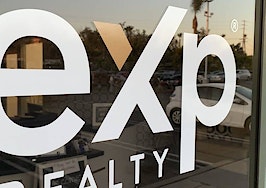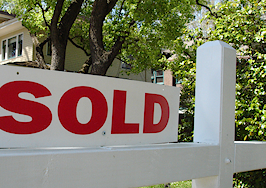Whether it’s refining your business model, mastering new technologies, or discovering strategies to capitalize on the next market surge, Inman Connect New York will prepare you to take bold steps forward. The Next Chapter is about to begin. Be part of it. Join us and thousands of real estate leaders Jan. 22-24, 2025.
Austin is going through some changes.
After becoming the marquee city for people relocating from coastal markets during the pandemic, the capital city of Texas started taking on a new vibe in recent years.
That goes for the parents at the local schools, boaters at Lake Travis and agents selling real estate in their new hometown.
TAKE THE INMAN INTEL INDEX SURVEY FOR SEPTEMBER
Cord Shiflet, an Austin native and agent with Moreland Properties, has seen the changes.
During the pandemic, Shiflet watched as people — homebuying clients as well as real estate professionals — streamed into the city to experience living in one of America’s hottest cities.
“There’s more backstabbing amongst people in our business that have moved here and started doing it,” Shiflet said in a recent interview.
Change is inevitable in a city that grows 20, 30, 40 percent each decade. But the pandemic seemed to throw fuel on the already red-hot city. Add to that changes brought about by the settlement agreement brokered by the National Association of Realtors and things have been a bit chaotic, Shiflet said.
Shiflet spoke with Inman in advance of his appearance at Inman Connect Austin next month. Below is our Q&A, edited for brevity and clarity.
Inman: Has Austin changed? I know it’s blowing up population-wise, but the types of people who are at your local coffee shop or who you’re seeing at the lake or who you’re seeing at the golf club, did any of that change noticeably to you?
Shiflet: Yes, it has. And it’s both good and bad. Along with people coming in and what that does for our local economy, for our arts, for our restaurants, for the kind of demands that people move in here from big cities in California with big expectations, you know, it starts to push us to bring more of those things to town, which is great.
One of the things that I think has been tricky for a lot of us is people want to come to Austin for a reason. And we have to kind of gently remind them they came here because they like what we are. Don’t try and make us what you were. You left that for a reason. We’ve just always been a good old boy, handshake city. We’re Texans.
Does that apply to clientele as well as people within the industry?
Business is much more contractual. There’s more backstabbing amongst people in our business who have moved here and started doing it. I’ve noticed a very different tone.
Funny thing is, you know, we would have people coming here who want to get into a private school or get into a country club. And they flock in saying, “Here’s my million dollar gift to your school; my kids are ready to get in.” And the school would say, ‘Whoa, not only do we not want your money, but we don’t need it. We don’t want people like this.”
Is it a noticeable change in the real estate industry that people have come from different markets and now they bring their different ways of doing business?
Absolutely. So many people see these TV shows and move here from those types of markets and they want the Selling Sunset type of stuff. We need to ask ourselves, is this what we want to be? Is this what we want to promote?
The part that’s been the most interesting has been with buyers coming here. They’ll go around and they’ll work with several different agents, and they don’t realize we’re a small town and all of us talk, especially when you get into the luxury market. It’s a very small market compared to LA.
And so we all know who’s shopping, we all know what they’re looking for, and we will real quickly figure out if a buyer is working with four different agents and dragging us all through the mud. I mean, again, we do business by handshakes and by trust. When you break that, you’re kind of out of the loop. There’s a few agents that play that game, but, you know, their reputation is what it is.
How are things going with talking with buyers and sellers on having an agreement in place before touring?
I would just say it’s absolute chaos. It’s the Wild West. None of us know what’s going on. I get extremely frustrated because every conference I go to, every real estate meeting we attend, someone raises their hand and brings up the subject, and then everybody has a different answer. Every brokerage is doing something different, every board, every city, every state.
I just think we all need to take a really deep breath and let this thing go for six months and figure out what’s going to work and what’s not.
It seems like a lot of different brokerages are doing things differently. Would it be better for everyone if it was standardized?
One hundred percent. The whole problem is they say we can’t put that in MLS. I don’t understand why. And I mean, the fix is to leave NAR. NAR is the one that mandates that.
We can pull out of NAR and do whatever the heck we want. Or we’re going to all of a sudden start seeing all of our listings go to private listing services that agents are going to be members of. I don’t like that NAR is putting handcuffs on boards as to what we can and can’t do with that. They hurt our business.
I’ve spoken with agents and brokers who said they wouldn’t be NAR members if they could maintain access to the MLS. But in order to effectively run their businesses, they feel they have to be a member or they pay more.
I want to be real clear, I’m no longer on the board of Austin Board of Realtors. So I don’t know what’s going on up there, but I think you’re going to start to see a lot of boards looking at “Why am I a member of NAR?” and “Do I need to keep this?” I think you’re going to start to see a lot of people leaving NAR.
We get the ability to say, “I’m a Realtor.” Well, I’m sorry, but that’s me as a used car name. I am embarrassed to say I’m a Realtor. I try and say I’m a broker. I sell houses. I avoid that word like the plague.
We get coverage, which we can go out and get our own. And we feed a political monster where they charge us these insane dues. And hey guys, by the way, we’ve got half a billion dollars in cash sitting there to settle a lawsuit. We’re not cutting your dues back. I mean, NAR is about to get a wake-up call.
Tell me more about the wake-up call.
A lot of boards are going to start looking at where are these dues going? Why is the top management, board members, all these different people associated with NAR, going off and having affairs with one another that make national news?
Why do we have the most highly paid attorneys managing this lawsuit that did a joke of a job and then come out with a settlement like this? No one in our industry is happy with how things are looking over there.
We’re one of the largest political action committees. And what are we getting for that? Who’s actually working for us? I really would be looking at that with wide-open eyes. And if I were in NAR, I would be doing a lot of digging and a lot of pivoting to show my members I’ve got their backs.
I know you’re a car guy. Can you tell me about Fool’s Roll?
Fool’s Roll started with an email thread of guys inviting each other on a trip to Vegas. We were all complaining about what airfare was. And I had just bought a fun old Porsche 944.
I remember responding to the email and just said, “Hey, let’s all get a piece of junk car and race it to Vegas.” And everyone said, “I’m in.” So from that led to this amazingly inappropriate, fun wild car race to Vegas.
The basic rules are just you buy a car, no more than $2,000. You race it to Vegas in costume and the costume usually costs more than the cars. The fastest time gets 10,000 bucks. If you get a ticket, you’re out. If you bribe your way out of ticketing, I don’t care. Just don’t get a ticket.
Then you sell your car when you get to Vegas and put all that money on one spin of the Roulette wheel. It’s just jackass event after jackass event for three fun-filled, crazy days.












